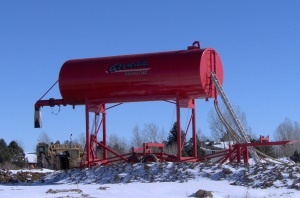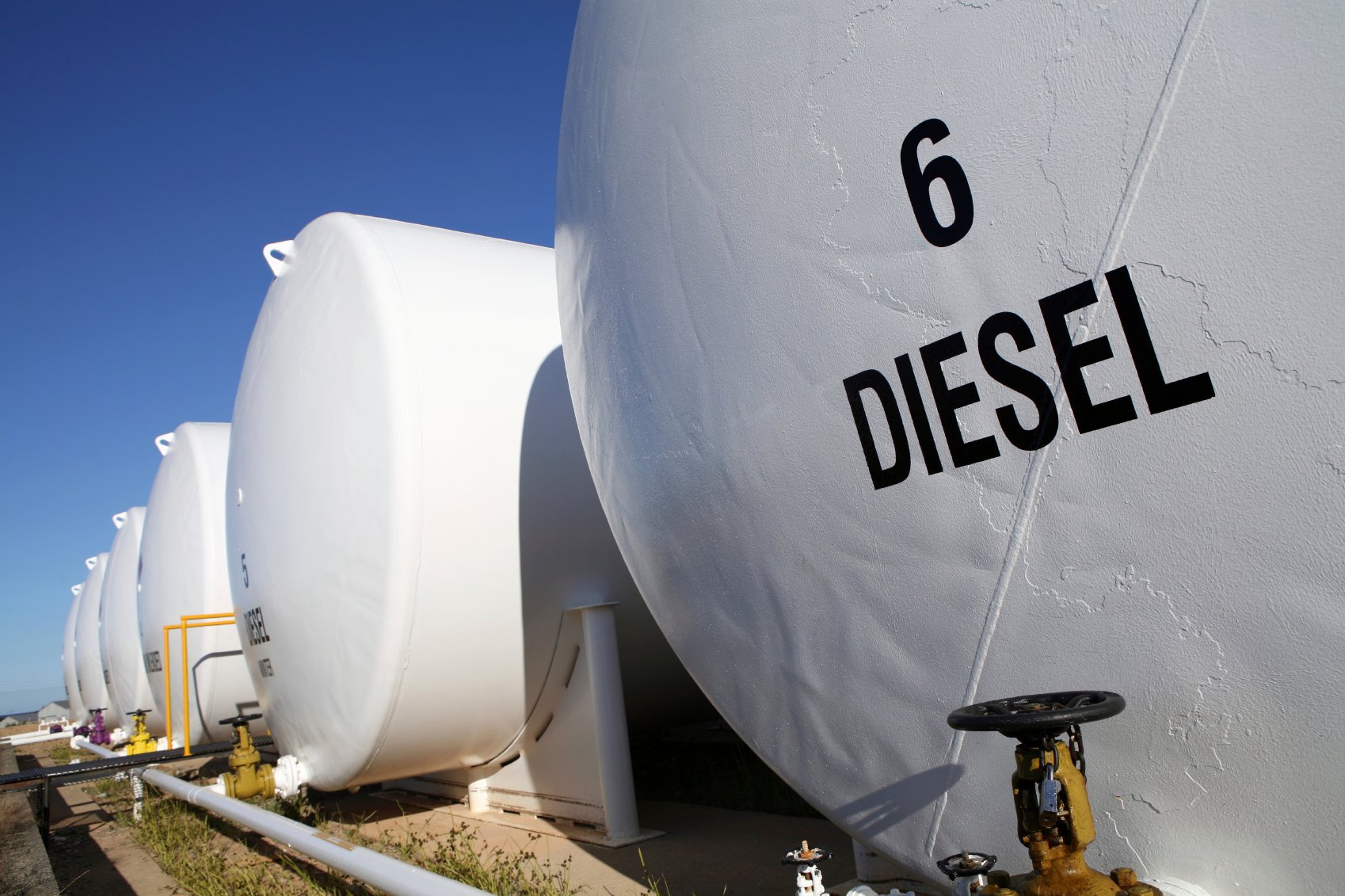Through the Contact Us forms on the Bell web site, we get all kinds of inquiries about fuel problems and engines from the general public. Some of them describe mechanical problems that people are having – problems that, while common across the industry, require some further investigation before the right advice can be given.
In this series, Bell’s resident master mechanic James Dunst discusses the most common mechanical problems that he gets asked about. He discusses the causes, what (if anything) can be done about them, and any further questions that a mechanic would probably ask in seeking to properly diagnose a fix such a problem.
The Common Problem: Poor Fuel Storage & Aged Fuel Effects
 Fuel properties have the greatest and most direct effect on the performance of the equipment that uses them. Hence, there are some important questions that consumers may have about the effects of poor fuel quality and how storage practices can affect it.
Fuel properties have the greatest and most direct effect on the performance of the equipment that uses them. Hence, there are some important questions that consumers may have about the effects of poor fuel quality and how storage practices can affect it.
What is the best way to store gasoline to extend its usable life?
The best way to store gasoline is in an underground tank where it is cooler and not subject to the heating and cooling effects throughout the day. The warmer the fuel is in storage, the faster it will deteriorate. Really, this is true of all petroleum fuels – heat makes them break down faster.
Most of the gasoline used today contains at least 10% ethanol, which will absorb water into the fuel, shortening its life. Once water is absorbed into gasoline, the life of the fuel is about 90 days. This is a lot shorter than it used to be.
Above ground fuel storage tanks should be filled completely to eliminate bare tank walls where condensation can form. Most fuel tanks are vented, which means the humidity inside the tank will be the same as on the outside. Keeping the tank full will reduce the amount of air in contact with the fuel, limiting water absorption. It is very important that gas storage cans be tightly sealed with vent caps closed. Gasoline storage life can be extended by adding fuel stabilizer which changes it chemically to slow down deterioration process. It is important to note that fuel stabilizer needs to be added when the fuel is fresh.
What is the best way to store diesel fuel to extend its usable life?
The things mentioned above for gasoline are also true with diesel fuel storage. There are two main things that happen to diesel fuel. The first problem is the growth of microbes which grow in tanks that have water on the bottom. Some people call it algae, but in fact it is bacteria, fungus and mold - microbes. When you get an active microbial bloom in a fuel tank, bad things will happen.
This can lead to the second problem - the deterioration of the fuel with the formation of solids and sediment in the diesel fuel. Both the microbes and the solids can shut down a diesel engine by plugging the fuel filter. It is wise to discard old diesel fuel because it is not worth the risk of an equipment break down. If the fuel is fairly fresh and you find a black slimy substance in the fuel filter, this is a good indication you have microbial growth. This also tells you there is water in the tank because without water, the microbes cannot grow. If you have this condition you will need to treat the fuel with a biocide plus a product to remove the water. Beware of products that say they inhibit microbial growth and contain products other than biocide ingredients. In most cases there is not enough biocide in these products to effectively kill microbes. If the biocide is not strong enough ,you may make the problem worse because the microbes can become immune to the biocide. You need a straight biocide in the proper shock dose to kill all of the microbial growth.
Lastly, diesel fuel storage life can be extended by adding fuel stabilizer which changes it chemically to slow down deterioration process. It is important to note that fuel stabilizer needs to be added when the fuel is fresh in order to be fully effective.
Can old fuel be rejuvenated with additives?
Once gasoline goes bad, there is no one chemical product on the market that will restore it to good usable fuel. Old deteriorated gasoline has a very distinct rotten smell to it and needs to be safely discarded. Attempting to dilute it with fresh fuel will give you a mixture can cause engine damaging pre-ignition.
Can phase-separated fuel be fixed?
Technically yes but it would cost you more than the fuel is worth. Phase separated fuel is what happens when too much water is absorbed by the ethanol into the fuel. Ethanol is hygroscopic and will absorb the humidity from the air. E10 gasoline will hold about two teaspoons of water in suspension per gallon and will phase separate after that. When this happens, the water and the ethanol will fall to the bottom of the tank where it will be ingested by the fuel pump or fuel pickup pipe. If this happens the vehicle will most likely stall and not restart. The gasoline above the water and ethanol will now be ruined because most of the octane would have been stripped from the fuel. Ethanol makes up a large portion of the octane and it is now on the bottom of the tank. Attempting to use this fuel will result in engine damaging pre-ignition. It is recommended that phase separated fuel should be safely discarded.
How does ethanol-blended fuel affect my boat?
Your chances of ending up with phase-separated fuel are much greater in boats because of the high water and high humidity environment. Internal fuel tanks in boats are permanently vented to the atmosphere. This allows humid air to be in constant contact with the fuel, with the moisture being absorbed as explained in the previous explanation on phase-separated fuel. Boats with internal fuel tanks should be either stored empty or completely full of fuel. If the tank is completely full this would limit the amount of air in contact with the fuel by eliminating the airspace above the fuel. Therefore there is less chance of water being absorbed into the fuel..
Why does my flex fuel vehicle get poor fuel mileage when using E85 Gasoline?
Ethanol has 25% less energy than gasoline so the more ethanol you have in your fuel the less mileage your vehicle will get. Also the performance of the engine will be reduced because of the reduced energy content of the fuel.
Should gasoline be drained from equipment placed in seasonal storage?
Here, we are mainly talking about seasonal equipment like lawn mowers, chain saws, weed whackers, snow mobiles, personal watercraft, and generators. This is especially important when the gasoline contains corrosive ethanol. Any time a piece of equipment is stored for a long period of time, it is best to drain the fuel from the carburetor and the fuel lines. If you have a fuel shut off valve you can turn it off while the engine is running and allow the engine to quit on its own. You can also drain the fuel tank and then run the engine until it stops. Basically you would be using up the fuel in the carburetor and fuel lines leaving these items empty until you are ready to use the equipment again.
Check out these posts related to fuel storage:


 Fuel properties have the greatest and most direct effect on the performance of the equipment that uses them. Hence, there are some important questions that consumers may have about the effects of poor fuel quality and how storage practices can affect it.
Fuel properties have the greatest and most direct effect on the performance of the equipment that uses them. Hence, there are some important questions that consumers may have about the effects of poor fuel quality and how storage practices can affect it.


